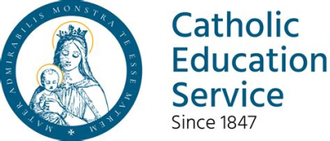Catholic schools on front line against child poverty

Marie Southall, Director of Partnerships and Public Affairs, Catholic Bishops' Conference of England and Wales and the Catholic Education Service writes:
It's clear to anyone in the education sector that for quite a while schools have been picking up the pieces from the retreat of local public services.
School leaders tell us they're increasingly taking the place of statutory support, and this isn't only for children but also now for families too. School staff members are having to handle issues related to physical and mental health, immigration, housing, transport and more, and what they are seeing is children living in poverty.
Over 90% of our schools have reported encountering families which are struggling with the cost of living, and 70% have noted worsening conditions.
We know this because at the end of last year our 2,155 Catholic schools, colleges and academies in England and Wales were asked about the extent of the child poverty that they were witnessing, and the results of this survey have been eye-opening. The cost-of-living crisis has meant instances of children arriving at school without having had any breakfast, and sometimes in insufficiently dry clothes due to high energy costs.
Free School Meals
When faced with this situation what matters is action and our schools and parishes are going above and beyond to support families. Help with school uniform and its costs is something that 94% of Catholic schools responding to our survey offer. Similarly, breakfast clubs are another one of the most common forms of assistance that our sector's schools provide, which have been up and running long before the Department for Education announced its intention for a national scheme. However, many parents of pupils at Catholic schools aren't eligible for Free School Meals due to their immigration status or by being in low-paid casual and temporary employment. Reforming the eligibility status for Free School Meals can solve this along with streamlining the application process, and awareness-raising initiatives.
Being part of a wider family of local parishes and charities also helps. Catholic Care, in the Diocese of Leeds, provides residential homes for children unable to live with their own families, a family style of living based on a stable and supportive environment. This is in addition to a team of educational psychologists who work in schools and with families as part of the diocese's school and family social work service.
Caritas Salford, the social action charity of Salford Diocese, supported over 2,700 children and young people last year through its social work, counselling and therapy initiatives. Recognising the more than 200,000 school pupils affected by parental incarceration, Catholic charity the Prison Advice Care Trust (Pact) runs services for visiting families in more than 60 prisons across the country. Other charities such as the St Vincent De Paul Society provide safe and caring holidays all over England for children in need of a break from family problems such as unemployment, illness, bereavement or relationship breakdown.
The two-child benefit cap
Long-term solutions must address the root causes of poverty, which may sound like an impossible task but in some cases can be achieved by a simple change in policy. The Department for Work and Pensions' own data states that 1.6 million children live in households which are affected by the two-child benefit cap for Universal Credit and Child Tax Credit. The majority of these homes have one or more householders in work. The cap exacerbates financial strain and disproportionately affects Catholic communities, where larger families are common.
The Catholic Bishops have called for the abolition of the two-child policy since its introduction in 2017, highlighting the moral imperative of valuing all children equally. In challenging times, and amid falling birth rates, the cap can prompt families to make difficult decisions about having new pregnancies rather than rightly valuing every new life as a blessing. In the words of the late Pope Francis: 'Every family is a common good and family policies represent not a cost but an investment to guarantee the futures of our societies.'
Mental health
While our schools do what they can to mitigate child poverty, there are other, knock-on effects. A strong connection between poverty and mental health issues was reported in our survey by 88% of schools, with financial instability exacerbating stress, anxiety, and depression among pupils and their families. This is in the context of a fifth of all pupils in state-funded Catholic schools meeting the highest national deprivation criteria, compared to a 12% England average, according to the Government's Income Deprivation Affecting Children Index (IDACI).
Supporting the whole person is a key part of any Catholic school's ethos, and pastoral care is provided including in the form of chaplaincy services, which have seen a significant increase in demand in recent years. So much so that a new School Chaplaincy and Youth Ministry apprenticeship course has been established by the Archdiocese of Southwark with St Mary's University, and a career development pathway for school chaplains has been developed by the Diocese of Nottingham to increase recruitment and retention.
Our students are also activists on behalf of others. Some at Cardinal Newman Catholic School, in the Diocese of Arundel and Brighton, helped secure a school-based mental health counselling pilot project in the Brighton and Hove Council area, following a decade of related mental health campaigning with the local NHS. The Government's policy commitment to roll out this initiative on a national scale is to be commended.
Overall, there are several policies in the Labour Party Manifesto at last year's election which promise to help reduce child poverty, and it referred to working with faith communities specifically on this issue. We hope that the Government will draw from the experiences of Catholic schools and charities to address the root causes of poverty and develop policies and strategies that will enable all children and families to flourish.
Read Child Poverty In England And Wales: www.catholiceducation.org.uk/resources/child-poverty-report


















